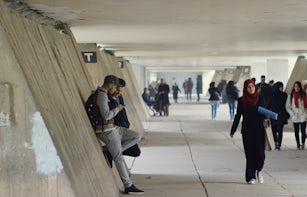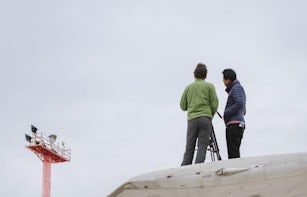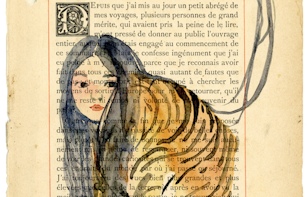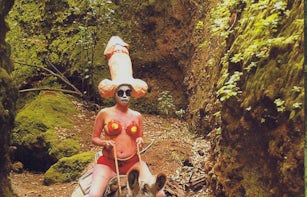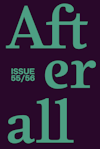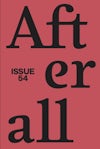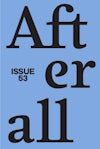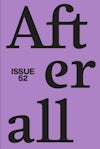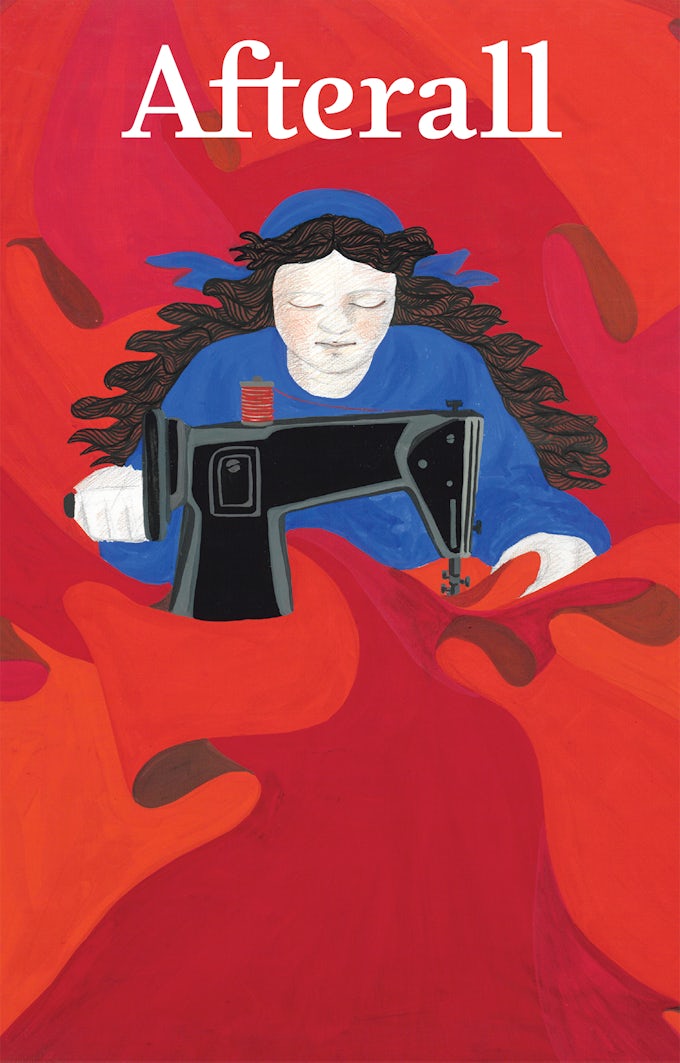
Issue 47
Spring/Summer 2019
Afterall is pleased to present issue 47, Spring/Summer 2019. Featuring the work of Gülsün Karamustafa, Naeem Mohaiemen and Araya Rasdjarmrearnsook, Afterall 47 considers ‘Situated Practices and Conditioned Positions’.
Editors:Ana Bilbao, Charles Esche, Anders Kreuger, Ute Meta Bauer, David Morris.
Founding editors: Charles Esche, Mark Lewis.
Table of contents
Foreword
Contextual Essays
- Exhibit A: Notes on a Forensic Turn in Contemporary Art – Charles Stankievech
- Unapologetic Soundings of Afro-Portuguese Creativity – Carlos Garrido Castellano & Jerssi Esperança Restino Paulo
- ‘A Test Tube’ of New Art: Naiqua and the Rental Gallery System in 1960s Japan – Reiko Tomii
Artists
Gülsün Karamustafa
- Gülsün Karamustafa: A Life of Care – Vasif Kortun
- Around the Tree: Notes on Gülsün Karamustafa’s Jail Experience and Its Resonances with Argentinian Cultural Production – Ana Longoni
Naeem Mohaiemen
- Naeem Mohaiemen’s Tragic History of the 1970s Left – Vijay Prashad
- Shifting Ground: On Stories and Archives in the Work of Naeem Mohaiemen – Kaelen Wilson-Goldie
Araya Rasdjarmrearnsook
- Water is Never Still: Araya Rasdjarmrearnsook’s Sculptural and Installation Practice – Clare Veal
- Other Faces: Araya Rasdjarmrearnsook’s Interspecies Engagements – Filipa Ramos
Events, Works, Exhibitions
- (Tran)scribed History: Thảo Nguyên Phan’s Palimpsest Visions of Colonialism and Conversion – Nora A. Taylor
- Privileging Community Voices: Cultural Revitalisation in Museology and Contemporary Art from Papua New Guinea – Michael A. Mel
- Counter-Imaginaries: ‘Women Artists on the Move’, ‘Second to None’ and ‘Like A Virgin…’ – Serubiri Moses
- Reconstruction of a Reconstruction: Constantin Brâncu?i in Multiple Historical Frames – Daria Ghiu
Foreword
Written by Ute Meta Bauer
Increasingly artists and writers from different parts of the world have been examining their own local histories, cultural and artistic, as well as personal and political. They have been employing subjective testimonies, expanding the possibilities of an aesthetics of evidence to question hegemonic narratives that have historically been one-sided and exclusionary. In this issue of Afterall we have taken our cue from this vital contemporary condition and through our selection of artists and writers have tried to foreground how geopolitical realities impact artistic production differently. If the journal’s initial point of departure twenty years ago was Euro-America, it has long since acknowledged that sociopolitical conditions at each place constitute divergent historical experiences and understandings of the work of art, its medium, materiality and meaning, all of which might shift once presented elsewhere. During Afterall’s two-decade history, the journal has reached out further, encouraging writers and scholars to research artistic positions in situ and to think about these within and beyond the context of the world of art. In editorial meetings over the past year held in Istanbul and Singapore, our discussions drew on recent approaches of ‘worlding’ that reposition one’s being ‘in’ this world. We believe that the artistic and critical inquiries featured in this issue are inseparable. They are intertwined in the intellectual trajectories formed and informed by the political realities of each place.
Consideration is given to how life experience affects artistic production of different generations, those who stay where they are born and those who move elsewhere – willingly or unwillingly. Juxtaposing artists and their particular circumstances at one locale and moment in time with those of another expands the method of how (art) history is written. This might encourage future inquiries across regions and continents shifting current modalities of exchange. ‘Global Modernity’ is understood to have unfolded at different times at different locations, yet the acceptance of multiple modernities means also to accept that it might arrive in one place at the expense of others. Such processes of recognition require delving deep into various national and regional politics as explored in this issue.
Turkey saw several coups from the 1960s to the 1980s; intellectuals and artists critical of the military junta were put into jail, among them family members of artist Gülsün Karamustafa. Later the artist herself and her husband Sadık, a graphic designer, were imprisoned and after their release were stripped of their passports for fifteen years. To this day she stays alert to political repression and violence against humankind. Vasif Kortun, a long-time friend of the artist, situates her practice within this period of violent oppression in their native country. He traces how her work evolved and chronicled the political and social changes over time. Ana Longoni, who has dealt in-depth with the cruel history of dictatorships across South America, draws parallels between the political struggle, the trauma of incarceration and tactics of survival of the artist in Turkey and that of cultural producers in her own country, Argentina.
Purchase
The publication is available for purchase. If you would like specific articles only, it is also available individually and to be downloaded as PDFs.
Purchase full publication
Buy via University of Chicago Press
Buy via Central Books
Purchase individual articles
Buy via University of Chicago Press
